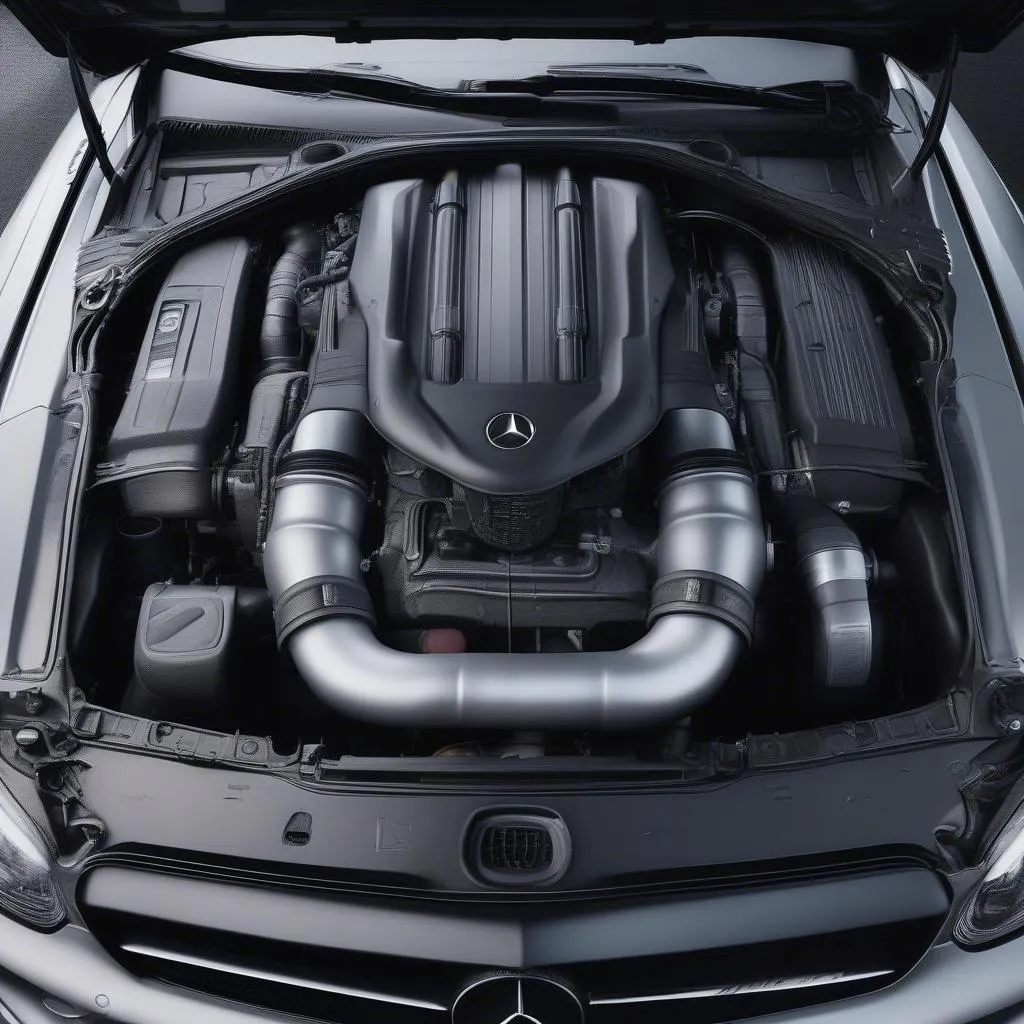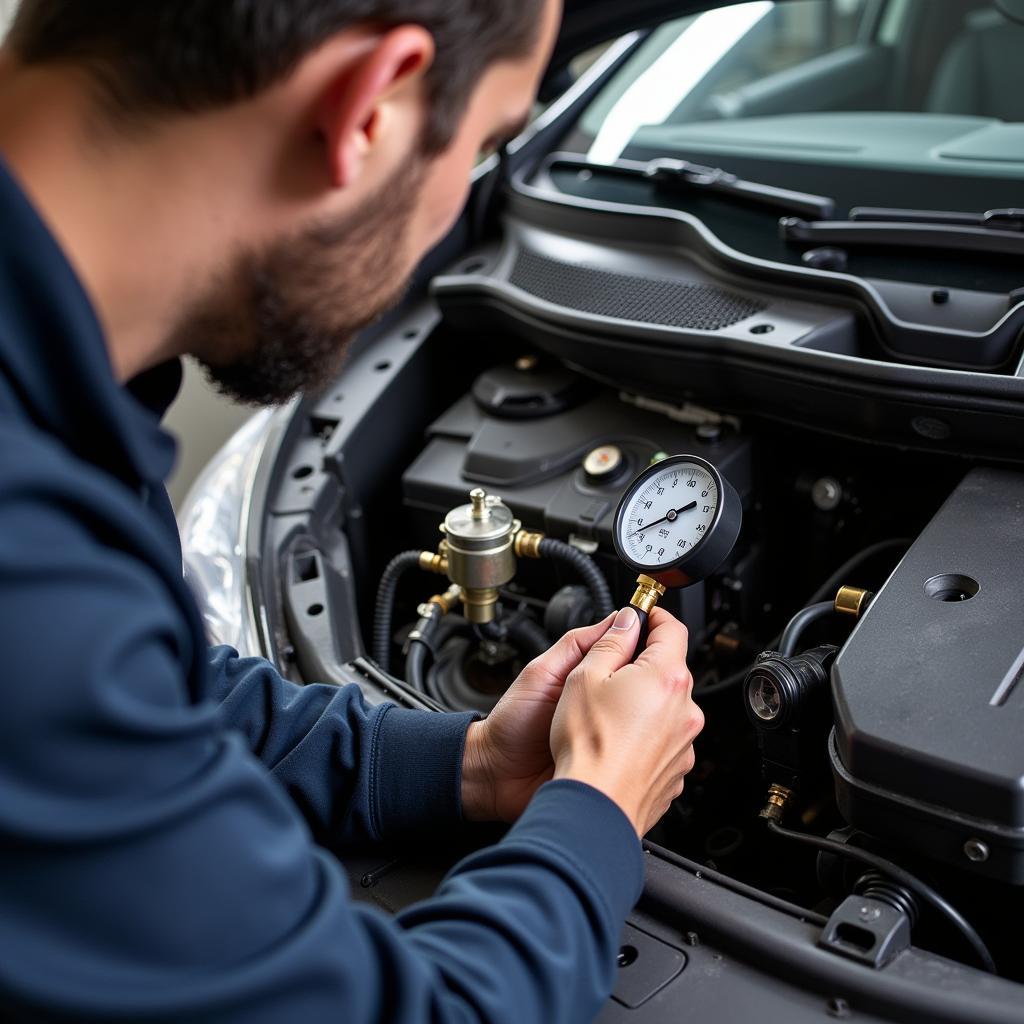Mercedes-Benz vehicles are renowned for their luxury, performance, and cutting-edge technology. However, a common question lingers in the minds of many owners and potential buyers: are Mercedes difficult to fix?
The answer, like most things automotive, is nuanced. Let’s delve deeper into the factors that contribute to the perception of Mercedes repair complexity and shed light on the reality.
Understanding the Factors
Complex Engineering and Technology
Mercedes vehicles are equipped with sophisticated engineering and advanced technologies. While these advancements contribute to performance, efficiency, and safety, they also introduce complexity to the repair process. Electronic systems, intricate components, and specialized tools can pose challenges for those unfamiliar with Mercedes-specific repair procedures.
 Mercedes Engine
Mercedes Engine
Specialized Tools and Software
Diagnosing and repairing modern Mercedes vehicles often requires specialized tools and diagnostic software. These tools are essential for accessing and troubleshooting the intricate electronic systems found in these vehicles. Independent mechanics and DIY enthusiasts may find it expensive or challenging to acquire and maintain these specialized tools.
Availability and Cost of Parts
Mercedes-Benz parts can be more expensive compared to some other car brands. Additionally, the availability of parts can sometimes be an issue, especially for older or less common models. This can lead to longer repair times and potentially higher costs.
Labor Costs
Due to the specialized knowledge and skills required to work on Mercedes vehicles, labor costs at dealerships and specialized repair shops can be higher compared to general automotive repair facilities.
 Mercedes Repair Shop
Mercedes Repair Shop
Common Mercedes Issues and Repairs
While Mercedes vehicles are generally reliable, some issues are more common than others. Let’s explore a few examples:
Electrical System Problems
Mercedes vehicles are heavily reliant on electronics, and electrical issues can arise. Problems with sensors, wiring harnesses, and control modules can lead to a variety of symptoms, from dashboard warning lights to engine performance issues.
Air Suspension Malfunctions
Many Mercedes models feature air suspension systems that provide a smooth and comfortable ride. However, air suspension components, such as air struts and compressors, can wear out over time, leading to leaks and suspension problems. You can find resources online, like on CARDIAGTECH, that provide more information on fixing specific issues, like how to fix power steering malfunction in a Mercedes C300.
Transmission Issues
Some Mercedes models have experienced transmission problems, particularly with certain automatic transmissions. These issues can manifest as slipping gears, rough shifting, or complete transmission failure.


